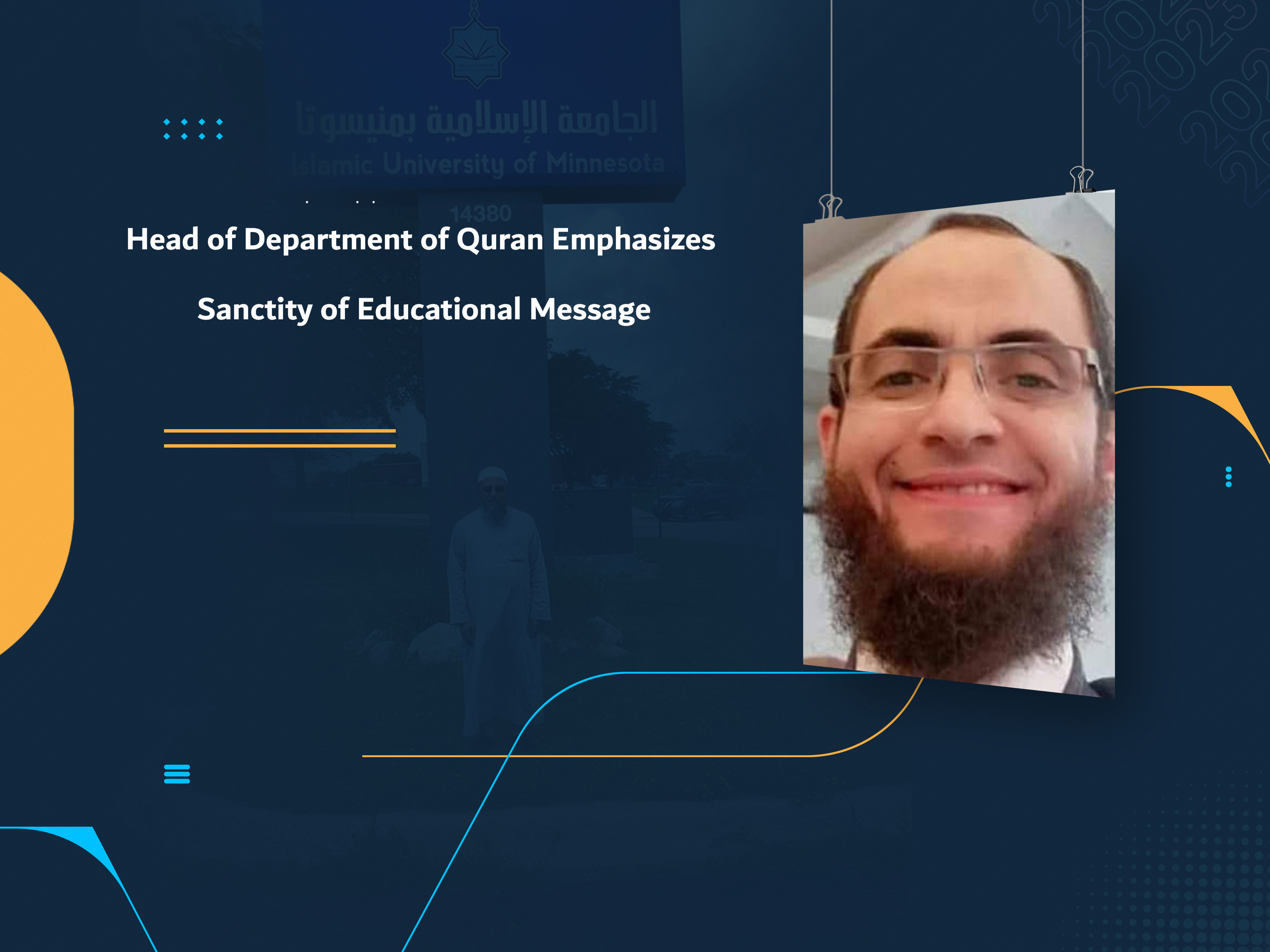Head of Department of Quran Emphasizes Sanctity of Educational Message

Doctor Islam Al-Sayed Abdulhamid, Head of the Department of Quran and Its Sciences at the College of Islamic Studies at the Islamic University of Minnesota, emphasized the sanctity of the educational message and the necessity of sincerity in fulfilling academic duties. He stated that working in the field of education is a voluntary service to God and one of the best forms of devotion. He affirmed that "there is no higher rank after prophet hood than the dissemination of knowledge, and that generosity in knowledge is better than generosity in wealth, as knowledge is nobler than wealth."
These remarks were made during the opening of the department's regular meeting on Saturday, June 28, 2025, chaired by him and attended by faculty members, at 5:30 PM Mecca time, as part of serious preparations for the launch of the new academic year.
The meeting discussed several educational and organizational topics that reflect the department's commitment to the quality of the academic process, including monitoring the regularity of classes, developing curricula, and preparing the university textbook, all in an atmosphere characterized by discipline and positive interaction.
The meeting addressed the organized start of the first semester, where department members confirmed the regularity of lectures from the first day and the careful monitoring by the deanship and department heads to ensure the educational process follows the planned frameworks. They also mentioned activating electronic channels, distributing guiding materials, and providing academic portal links to students, along with monitoring subject groups and responding to inquiries.
Regarding "organizing lectures and adhering to timing," the meeting stressed the importance of strict adherence to the start and end times of lectures, taking into account the time and language differences for international students. The necessity of delivering lectures visually, providing summaries, and uploading educational materials on official platforms was emphasized.
The attendees also discussed "developing teaching methods and enhancing interaction," recommending updates to educational tools through the use of interactive presentations and mind maps, encouraging student participation from the first lecture, clarifying the objectives and content of the course, and promoting critical thinking and constructive dialogue within the classroom.
The meeting covered the topic of "a clear examination system and fair distribution of grades," discussing the mechanism for preparing midterm and final exams and the need for early preparation, as well as adopting a comprehensive evaluation system.
The "university textbook project" received significant attention, with discussions focused on preparing a unified book for each course, led by a specialized committee headed by Dr. Hazem. A mechanism was proposed for distributing tasks among faculty members, with a symbolic reward (50 dollars) for those who participate in preparing an academic book. The department head remarked, "This is knowledge that we disseminate and leave behind; even if the professor leaves the university, its impact continues in their record of deeds."
The meeting concluded with several purposeful recommendations, including inviting department members to actively participate in preparing university textbooks, activating the curriculum committee, dividing roles among its members, and enhancing academic communication and collaboration within the department.
It is noteworthy that this meeting, according to an academic source, reaffirmed the Department of Quran and Its Sciences' commitment to its academic and developmental responsibilities, within a clear educational vision aimed at enhancing the quality of education and providing a rich and effective academic experience for students.


